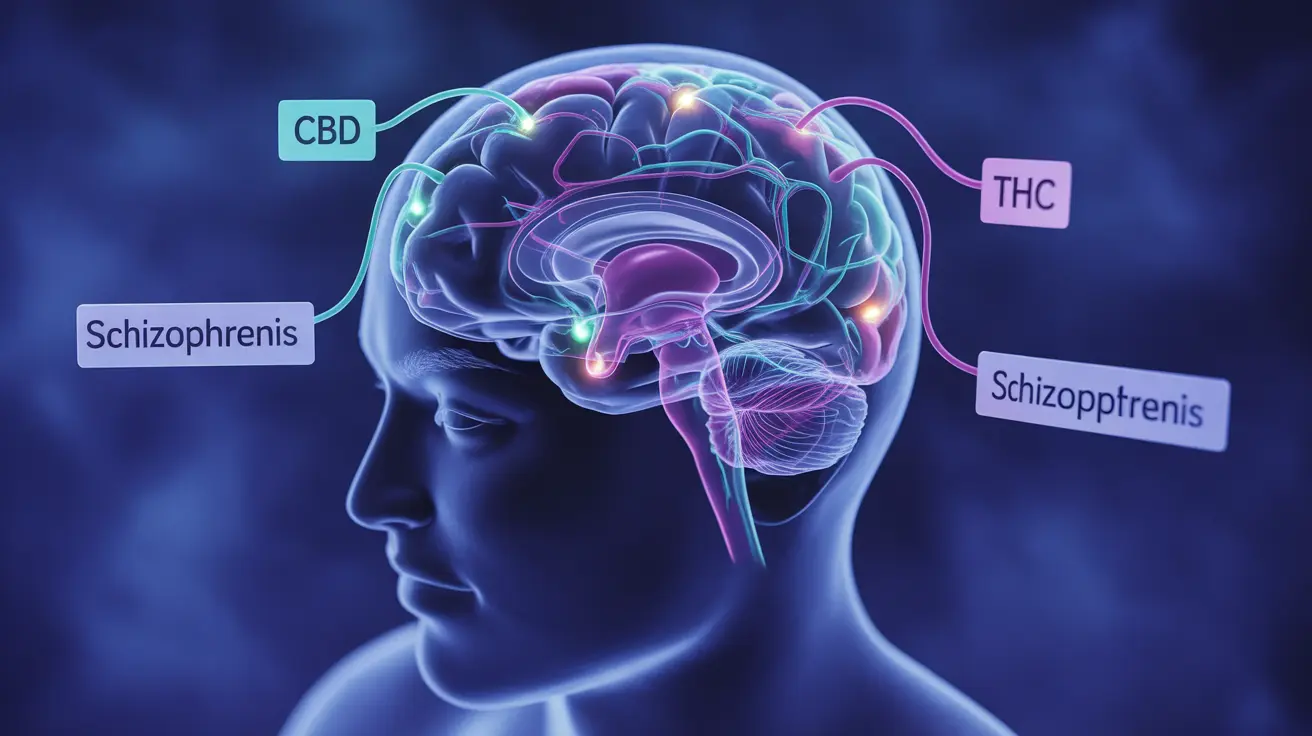The relationship between CBD (cannabidiol) and schizophrenia has become a topic of increasing interest in both medical research and public discourse. As CBD products gain popularity for various health applications, it's crucial to understand how this compound might affect individuals with schizophrenia or those at risk of developing psychotic disorders.
This comprehensive guide explores the current scientific understanding of CBD's relationship with schizophrenia, examining both potential benefits and risks while distinguishing between different cannabis compounds and their effects on mental health.
Understanding CBD and Its Effects on Mental Health
CBD is a non-psychoactive compound found in cannabis plants that has shown promise in various therapeutic applications. Unlike THC (tetrahydrocannabinol), CBD doesn't cause intoxication or the "high" associated with cannabis use. This distinction is crucial when discussing its potential impact on mental health conditions like schizophrenia.
The Science Behind CBD and Schizophrenia
Research suggests that CBD may actually have antipsychotic properties, working differently from traditional antipsychotic medications. It interacts with the body's endocannabinoid system, which plays a role in various brain functions including mood, memory, and cognitive processes.
CBD vs. THC: Contrasting Effects
While CBD shows potential therapeutic benefits, THC has been associated with an increased risk of psychotic symptoms in some individuals. This contrast highlights the importance of understanding the different components of cannabis products:
- CBD: Generally considered non-psychoactive
- THC: Can trigger or worsen psychotic symptoms
- Full-spectrum products: Contain multiple cannabis compounds
- Isolate products: Contain only CBD
Safety Considerations and Research Findings
Current evidence suggests that pure CBD products, when properly sourced and dosed, generally don't increase the risk of developing schizophrenia. However, several important factors should be considered:
- Quality and purity of CBD products
- Individual sensitivity to cannabis compounds
- Existing mental health conditions
- Current medication interactions
Treatment Potential and Clinical Applications
Some studies indicate that CBD might help manage certain symptoms of schizophrenia, particularly when used as an adjunct treatment. However, this should always be discussed with healthcare providers and shouldn't replace prescribed medications.
Frequently Asked Questions
Can cannabidiol (CBD) cause or increase the risk of schizophrenia?
Current research suggests that pure CBD alone does not cause or increase the risk of schizophrenia. In fact, studies indicate it may have antipsychotic properties. However, it's crucial to use only high-quality, THC-free CBD products and consult healthcare providers before use.
How does CBD affect symptoms of schizophrenia compared to THC?
CBD and THC have opposing effects on schizophrenia symptoms. While CBD may help reduce psychotic symptoms through its potential antipsychotic properties, THC can trigger or worsen psychotic symptoms and should be avoided by individuals with schizophrenia or those at risk.
Is CBD safe to use for people with schizophrenia or those at risk of psychosis?
Pure CBD products may be safe for people with schizophrenia when used under medical supervision. However, safety depends on factors like product quality, dosage, and interaction with other medications. Always consult healthcare providers before starting CBD use.
What are the potential benefits of using CBD as part of schizophrenia treatment?
Research suggests CBD might help manage certain schizophrenia symptoms, potentially improving cognitive function and reducing anxiety. However, it should only be used as part of a comprehensive treatment plan developed with healthcare professionals.
Should people with schizophrenia avoid THC-containing cannabis products?
Yes, individuals with schizophrenia or those at risk should avoid THC-containing cannabis products. THC can trigger psychotic episodes, worsen existing symptoms, and potentially interfere with antipsychotic medications.
Final Thoughts
While research on CBD and schizophrenia continues to evolve, the current evidence suggests that pure CBD products don't increase schizophrenia risk and may offer potential benefits when used appropriately. However, careful consideration of product selection and professional medical guidance remain essential for safe use.




